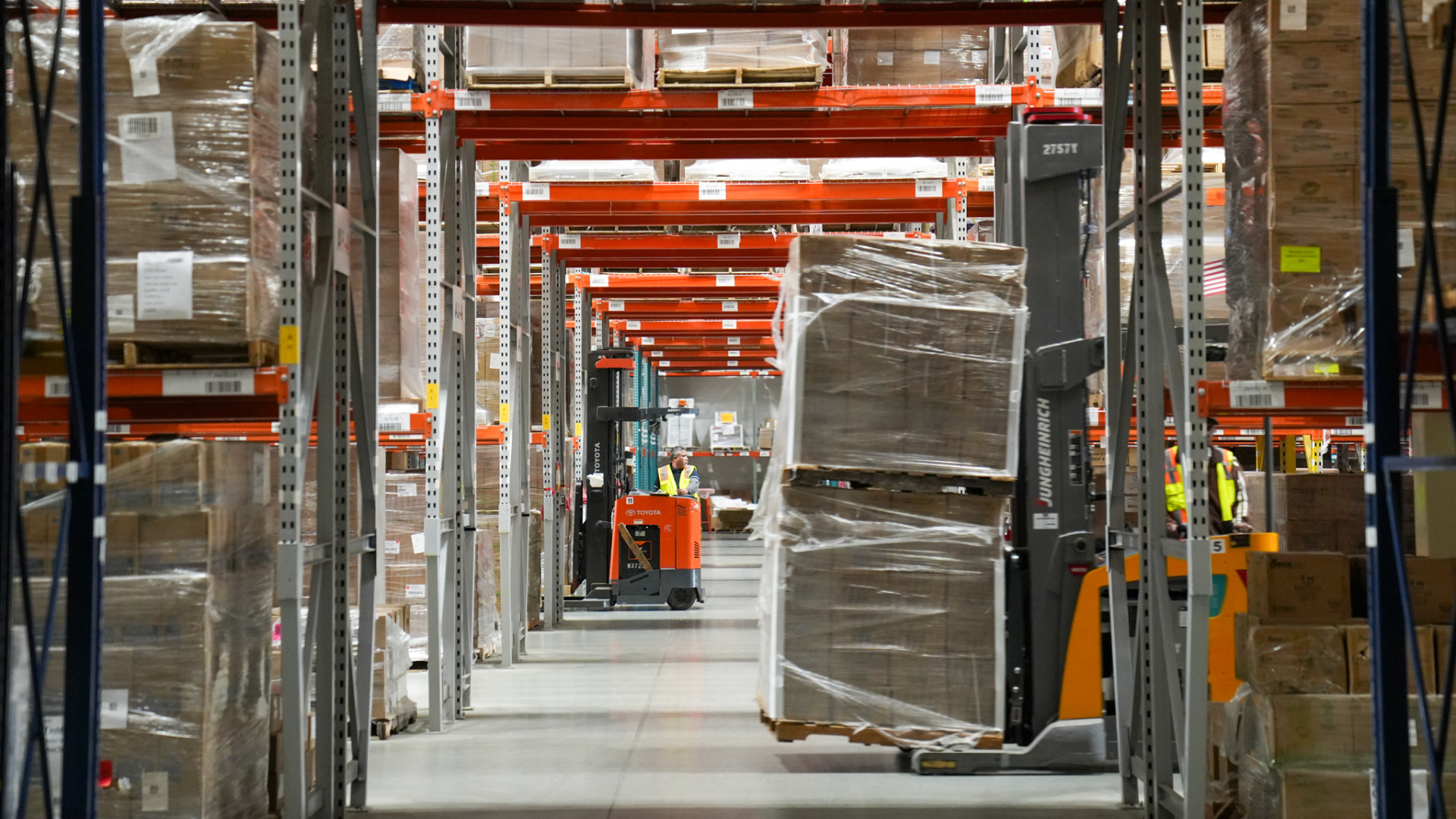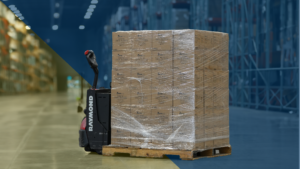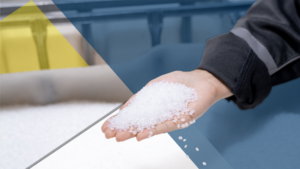Third Party Logistics (3PL) companies provide transportation, warehousing, distribution, inventory management, order fulfillment, and other services to businesses looking to scale or outsource these operations. By handling these logistics functions, 3PLs allow businesses to focus on their core competencies, such as product development and sales, while benefiting from the expertise and resources of the logistics provider. Let’s take a deeper look at the function of 3PLs in the supply chain and how the services they provide can add value to a business.
How have 3PL services changed throughout the years?
3PL providers have emerged over time as a response to the evolving needs of businesses seeking more efficient ways to manage their supply chains. Rapid industrial growth, global expansion, and changing consumer needs have fueled the rise of these third-party intermediaries.
Factors That Contributed to the Growth of 3PLs
- Post-World War II Industrial Expansion: After World War II, global trade boomed and the rapid industrial growth created a need for more efficient logistics solutions. As manufacturing and distribution networks became more complex, businesses started looking for specialized logistics services to handle the transportation and storage of goods.
- Deregulation of the Transportation Industry: In the late 1970s and early 1980s, The Motor Carrier Act and the Staggers Rail Act reduced government control over pricing, routes, and market entry for trucking and rail companies. This deregulation led to increased competition, lower transportation costs, and more opportunities for logistics service providers to enter the market.
- Outsourcing Trend in the 1980s and 1990s: As more players entered the market, companies in the 1980s and 1990s increasingly focused on their core competencies and started outsourcing non-core functions, including logistics. This outsourcing trend was driven by the desire to reduce costs, improve efficiency, and gain access to specialized expertise and technology.
- Advances in Technology: The development and adoption of new technologies, such as computers, barcoding, electronic data interchange (EDI), and later, internet-based systems, significantly improved logistics management. These technological advancements enabled 3PLs to offer more sophisticated and integrated logistics solutions.
- Globalization: The expansion of global trade and the creation of global supply chains in the late 20th and early 21st centuries increased the complexity of logistics operations. Businesses needed more comprehensive logistics services to manage international shipping, customs clearance, and cross-border transportation. 3PLs provided the expertise and global networks necessary to handle these challenges.
- Customer Demand for Value-Added Services: In an increasingly competitive environment, businesses sought ways to stand out and add value to their customers. 3PLs began offering value-added services such as packaging, labeling, assembly, and reverse logistics (handling returns and recycling), creating new areas of value and securing their place in the supply chain.
How the 3PL Industry is Changing
Today, third-party logistics providers are leaning heavily towards technological innovation, leveraging automation, robotics, and big data to streamline their operations and enhance their service set. Let’s take a closer look at the main reasons behind why 3PL services are changing:
- The Increase of Technology Integration: The integration of advanced technologies, such as automation, artificial intelligence (AI), and the Internet of Things (IoT), is transforming the 3PL industry. Automation is being used to streamline warehouse operations, improve order accuracy, and reduce labor costs. AI and machine learning are enhancing demand forecasting and route optimization, while IoT devices provide real-time visibility into inventory levels and shipment status.
- Rapid E-commerce Growth: The rapid growth of e-commerce is driving demand for 3PL services. E-commerce businesses require efficient logistics solutions to manage high order volumes, ensure fast delivery, and handle returns. Logistics providers are expanding their capabilities to meet the unique needs of e-commerce retailers, including offering same-day and next-day delivery services.
- Large Focus On Sustainability: Sustainability is becoming increasingly important everywhere, especially in the logistics industry. Many 3PL providers are adopting eco-friendly practices, such as using electric vehicles for transportation, implementing energy-efficient warehouse operations, and offering sustainable packaging solutions.
- Businesses Want Custom Solutions: As businesses seek more tailored logistics solutions, 3PL providers are offering customized services to meet specific needs. This includes designing unique supply chain strategies, providing dedicated account management, and offering flexible service options. By providing personalized solutions, they can better support the diverse needs of their clients.
What services do 3PLs provide today?
Almost every modern 3PL will have competencies in these five areas: Warehousing & Distribution, Transportation, Order Fulfillment, and Reverse Logistics, and Technology. Within these subsets, there are many different services that may be useful for businesses depending on what their products are and require.
Warehousing & Distribution
- Storage Solutions: One of the primary services offered by 3PL providers is warehousing. There are many different types of warehouses so it’s important to check with the provider to see if they provide the right storage for your goods.
- Inventory Management: Logistics partners use software to track inventory levels in real-time, manage stock rotation, and minimize the risk of stockouts or overstock situations.
- Product Rework: Product rework is crucial for maintaining quality standards. 3PLs can relabel, reconfigure, and repalletize products, ensuring they are perfectly prepared for shipment.
Transportation
Freight Forwarding: 3PLs provide freight forwarding services that arrange the transportation of goods from the manufacturer to the end customer, using various modes of transport such as air, sea, and road.
Last-Mile Delivery: Last-mile delivery is the final step in the delivery process, and is directly correlated to customer satisfaction. 3PLs can offer last-mile delivery services, ensuring that products are delivered to the end customer quickly and reliably.
Transportation Management: Transportation management involves planning, executing, and optimizing the physical movement of goods. 3PLs have comprehensive transportation management services, including carrier management, freight bill auditing, and real-time shipment tracking.
Customs Brokerage: Ensuring smooth customs clearance is a must for international shipments. 3PLs can handle all necessary documentation, compliance checks, and tariff classifications, minimizing delays and avoiding potential fines or penalties.
Reducing Carrier Rates: 3PLs negotiate competitive shipping rates by leveraging their high order volumes, ensuring cost-effective and reliable transportation for your shipments.
Order Fulfillment
- Picking and Packing: Pick and pack fulfillment is one of the most critical services provided by 3PLs. It involves picking the right products from the warehouse, packing them securely, and preparing them for shipment.
- Shipping: Once orders are picked and packed, they need to be shipped to the customer. 3PL providers handle the entire shipping process, from selecting the best shipping method to arranging for carrier pickup.
- Returns Management: Efficient returns management is essential for maintaining customer satisfaction. 3PL providers can handle the entire returns process, from receiving returned items and inspecting them to processing refunds or exchanges.
Reverse Logistics
- Returns Processing: 3PLs often offer returns processing services, including receiving, inspecting, and restocking returned items. They can also manage the repair, refurbishment, or disposal of damaged goods.
- Refurbishment and Repackaging: Some returned goods can be refurbished and repackaged for resale. 3PL providers offer refurbishment and repackaging services, ensuring that returned products are restored to a saleable condition.
- Sustainable Disposal: For products that cannot be resold, 3PL providers offer sustainable disposal solutions. This includes recycling, repurposing, or disposing of products in an environmentally responsible manner.
Technology Integration
- Integration With Client’s Systems: 3PLs can integrate their logistics platforms with clients’ existing systems, ensuring real-time data exchange and streamlined processes. This integration enhances visibility, improves accuracy, and enables better coordination across the supply chain.
- Implementation of Logistics and Supply Chain Software: A 3PL partner can handle everything from software selection and customization to installation and training. This implementation enhances operational efficiency and provides real-time insights for clients.
What value-added services do 3PLs have?
Outside of some of the core service offerings provided by 3PLs, they typically have a set of value-added services to better improve the customer experience. These can include:
Product Kitting
Product kitting is the process of combining multiple individual, related SKUs together into a new SKU, which is then packaged and shipped as a single unit. 3PLs can provide many different kitting types such as just-in-time kitting, promotional kitting, and on-demand kitting.
Custom Packaging
3PLs work with clients to create custom packaging solutions tailored to the exact needs of their clients. This includes creating branded packaging, providing the right void fill to prevent damage during transit, and ensuring that packaging meets regulatory requirements.
Cross-Docking
Many 3PL providers offer cross-docking services to reduce storage costs and improve delivery speed. This is particularly useful for businesses dealing with perishable goods or time-sensitive shipments.
Quality Control
Quality control is essential for maintaining product standards and customer satisfaction. 3PLs offer quality control services, including product inspections, testing, and verification. This ensures that only high-quality products reach the end customer, reducing the risk of returns.
Example Of 3PL Services In Action
A healthcare company needed a reliable logistics solution to manage the storage and distribution of medical devices. They knew they needed assistance with regulatory compliance, temperature-controlled and secured storage space, inventory management, and recall management. Here is how the 3PL assisted the healthcare company, ensuring all their needs were met:
- Regulatory Compliance:
- FDA Regulations: Adherence to the U.S. Food and Drug Administration (FDA) regulations, including Good Manufacturing Practices (GMP) and Good Distribution Practices (GDP).
- ISO Standards: Compliance with ISO 13485, which specifies requirements for a quality management system specific to medical devices.
- Global Regulations: Understanding and complying with regulations in other countries if the medical devices are distributed internationally, such as the European Union’s Medical Device Regulation (MDR).
- FDA Regulations: Adherence to the U.S. Food and Drug Administration (FDA) regulations, including Good Manufacturing Practices (GMP) and Good Distribution Practices (GDP).
- Temperature Controlled & Secure Storage:
- Cold Chain Management: Some medical devices require storage at specific temperatures to maintain their integrity and functionality.
- Monitoring Systems: Implementation of advanced temperature monitoring systems to ensure consistent environmental conditions.
- Controlled Environment: Maintaining a clean, controlled, and secure storage environment to prevent contamination and ensure the safety of medical devices.
- Cold Chain Management: Some medical devices require storage at specific temperatures to maintain their integrity and functionality.
- Inventory Management:
- Traceability: Detailed tracking and traceability of inventory to ensure batch and serial number tracking for recalls or audits.
- Expiry Date Management: Monitoring and managing expiration dates to ensure that expired products are not distributed.
- Traceability: Detailed tracking and traceability of inventory to ensure batch and serial number tracking for recalls or audits.
- Recall Management:
- Efficient Recall Processes: Establishing effective recall processes to quickly and accurately remove affected products from the supply chain if needed.
The 3PL provider’s expertise in handling these products ensured that medical devices were stored and transported under optimal conditions, maintaining their quality and safety.
Need A 3PL? Choose Nautical Manufacturing & Fulfillment
Businesses need a 3PL provider capable of delivering best-in-class logistics services to ensure a seamless supply chain. Beyond our wide-range of 3PL offerings, we work with our sister companies that span the entire supply chain. This approach allows clients to manage their logistics under one umbrella, enjoying significant cost savings without compromising on quality.




